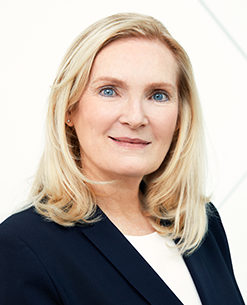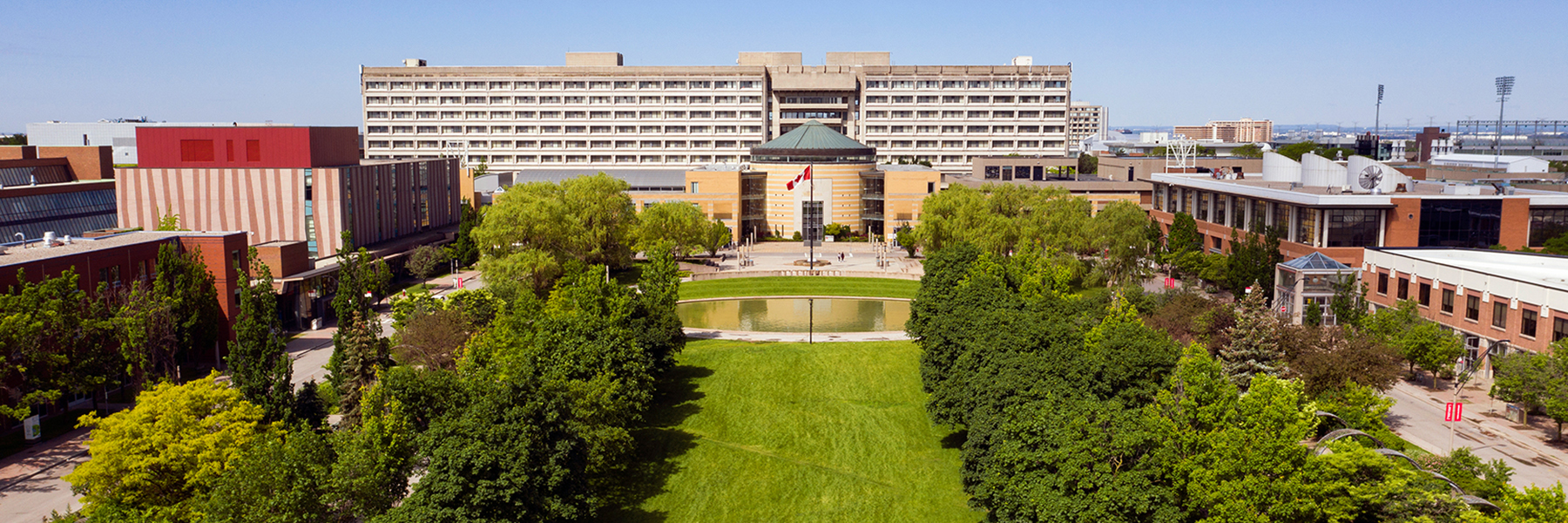York University President and Vice-Chancellor Rhonda Lenton recently celebrated an important milestone, and completed her first five-year term as president. As she turns her focus to setting priorities for the next five years, she took a moment to meet with YFile to look back at how the University, and the president, have changed.

Q. When did you join York University?
A. I first joined as dean of the Atkinson Faculty of Liberal and Professional Studies. I was drawn to York because it epitomized what progressive, modern universities needed to be doing: removing systemic barriers to access for higher education and driving positive change. The Faculty was an innovative concept, bringing together professional programs and the liberal arts. I loved that combination and its commitment to serving diverse student populations including mature working students. Atkinson understood the importance of lifelong education especially in a knowledge economy and led the way.
Q. What inspired you to become president?
A. First, I was dean, then vice-provost, then provost. When I was in those roles, I had the opportunity to talk with members of our community and externally about York’s vision, and I was excited about how we were united in providing a broad demographic of students with access to a high-quality education at a research-intensive university committed to righting the future. That vision aligns with what I believe, and I am happy to say that that vision continues to inform our strategic planning including the University Academic Plan 2020-2025 (the UAP).
My parents were not able to go to university but were believers in the value of higher education. I fully embrace York’s vision and its values to be: excellent in all that we do, progressive, socially responsible, inclusive and sustainable. I thought as president I could drive that vision forward. Not just at York, but within Ontario and Canada’s higher education sector. York is a leader in higher education around these important values and it is a privilege to be part of helping York realize its vision.
Q. Any advice you would give to your former self?
A. Have clarity of purpose combined with a heavy dose of humility. Be flexible. Change is happening quickly, and everybody needs to be empowered – students, staff, course directors, faculty, our alumni, our partners – to fully realize our vision. We need the smart minds and the energy of the entire community. Humility reminds you that you have good ideas, but they are no match for the combined impact of everybody’s good ideas. And, you’re always learning, no matter what position you hold in the University.
Q. How has the University changed in the last five years?
A. There’s a lot I could highlight, but more than anything it is without doubt York’s reputation. We are being recognized for our innovation, our excellence, our commitment to accessibility, our impact on driving positive change.
We continue to create leading-edge new programming and drive the research and innovation that’s needed for the social, economic, environmental and cultural benefit of the communities we serve. Of course, the pandemic these past two years has further spurred innovation in pedagogy, how we provide services, how work is organized that we will need to reflect on carefully as we think about the next five years.
I believe that York has also significantly expanded strategic partnerships locally and globally enhancing what we have been able to accomplish. I might just mention the work that we have done together with governments, the private sector and non-profit, to advance the Markham Campus and more recently, the Vaughan Healthcare Centre Precinct discussions, to meet the future talent needs and to collaborate on global problems. We have taken up the challenge of reducing our ecological footprint and strengthening our impact on the United Nations Sustainable Development Goals establishing ourselves as a leader in sustainability through our own practices and through interdisciplinary research, including leveraging our campuses as living labs to test out ideas. We have significantly increased experiential education and entrepreneurship opportunities for our students. And I should also mention the subway. It has made York more accessible and will be linked up with our Campus Vision and Strategy for Keele.
Q. Anything to say to the York community?
A. I want to acknowledge the impact of the combined contributions of our community and our partners that have made all the difference especially at a time of increasing geopolitical polarization. It’s captured in our UAP… and reconciliation. More needs to be done and it is absolutely essential that we safeguard the role that universities play in facilitating open and respectful debate on these issues. People have different lived experiences, interests and different problems, but York’s success over these last five years, despite having to deal with a once-in-a-lifetime catastrophe, says something about our community.
Q. What are your proudest moments from the last five years?
A. I’m most proud of the way this community has rallied over the last five years to advance the UAP, look after our students, and each other. We’ve increased experiential education, including virtually; innovated in pedagogy; we had the highest Tri-Council* performance in grant funding ever; we have advanced the Vaughan Healthcare Centre Precinct plan; enhanced the student learning experience; made progress on digital transformation. No matter what component of our priorities you talk about, we have made significant progress and in doing so, we have strengthened our impact on the UN SDGs and we have done so in a financially sustainable way that enhances how everybody experiences the University. I do not know many universities that have managed that as well as York. We should all take a huge amount of satisfaction from what we have been able to accomplish most especially when it comes to driving positive change.
*The Tri-Council funding agencies are the Canadian Institutes of Health Research (CIHR), the Natural Sciences and Engineering Research Council (NSERC), and the Social Sciences and Humanities Research Council (SSHRC). They support and promote high-quality research in a wide variety of disciplines and areas. The Government of Canada supports research and training at post-secondary institutions primarily through these agencies.


